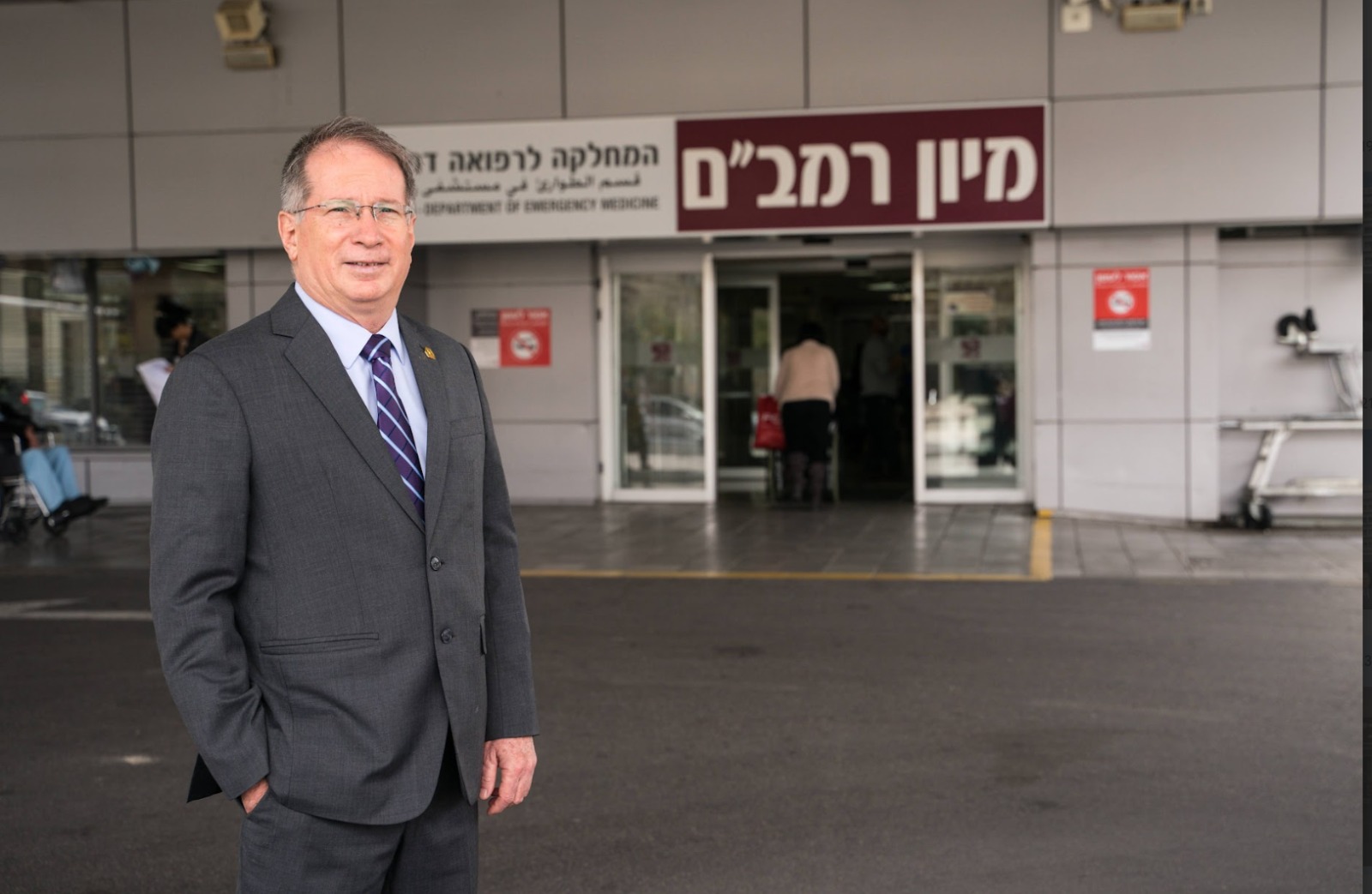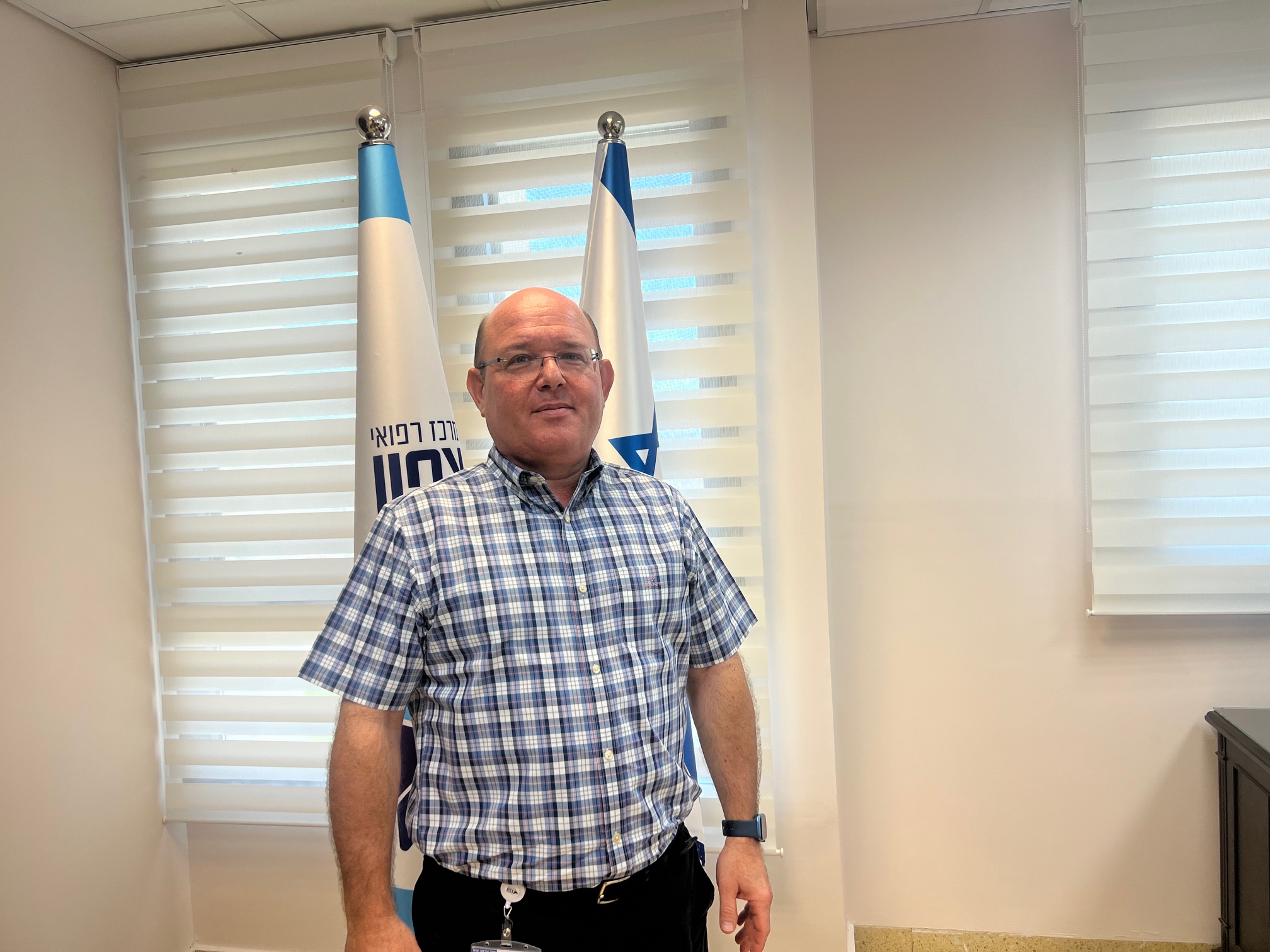While Treating Majdal Shams Attack Victims, Northern Israeli Hospitals Brace for Further Escalation
Full recovery may take a while for the young people injured in the Hezbollah strike, and hospital officials are concerned about the tests that could be posed in the meantime by an all-out war
Several days after the Hezbollah attack that killed 12 children in the Druze town of Majdal Shams, 20 young people remain hospitalized, many in serious condition.
Michael Halberthal, director general of Rambam Hospital in Haifa, told The Media Line on Monday evening that the hospital was still caring for five children injured in the attack, three of whom were on ventilators. One child is in critical condition, and two others are in serious condition.
“We are still not out of the woods,” Halberthal said. “It will take a while.”
Four additional victims, three children, and a 22-year-old man are hospitalized at Tzafon Medical Center in the Galilee.
Hospital director Noam Yehudai told The Media Line that two of the children were in the pediatric intensive care unit, one in serious but stable condition and the other in moderate condition.

Prof. Michael (Miki) Halberthal (Nitzan Zohar)
The third child was expected to be discharged from the pediatric department soon, and the 22-year-old was moved on Monday from the ICU to a regular ward.
The remaining 11 patients hurt in the attack are being treated at Ziv Medical Center in Safed. As of Monday, three children were still in the pediatric ICU. Aviram Nissan, the hospital’s chair of surgery, told The Media Line that those three children have abdominal injuries, chest injuries, and limb fractures. Two of them are sedated and ventilated.
Nissan said the patients’ recovery was expected to take several more weeks. “We believe they will be back on their feet and return to normal life,” he said.
This holiday season, give to:
Truth and understanding
The Media Line's intrepid correspondents are in Israel, Gaza, Lebanon, Syria and Pakistan providing first-person reporting.
They all said they cover it.
We see it.
We report with just one agenda: the truth.


Ziv Medical Center originally received 39 wounded individuals.
Days after the attacks, the international community is on high alert for Israeli retaliation. On Tuesday morning, Prime Minister Benjamin Netanyahu and Defense Minister Yoav Gallant said they were still considering their response.
Halberthal said that Rambam had not received any security updates from the Ministry of Health or the Home Front Command and was operating as usual. An attack on Haifa, where Rambam is located, would be a serious escalation in the conflict between Israel and Hezbollah.
Hospitals in northern Israel have altered their routines since Hezbollah began firing rockets at Israel on October 8. Some have begun stockpiling supplies like blood to ensure they can continue treating patients in case of further escalation, and some are operating partially underground. Northern hospitals have also conducted numerous mass casualty drills, which hospital officials said proved helpful during the Majdal Shams attack.
Tzafon Medical Center, which houses the region’s only emergency helicopter pad, has worked closely with the Israeli emergency medical service even before the war. Under normal circumstances, director Yehudai said, about 95% of helicopters carrying trauma patients from the eastern Galilee land at Tzafon. The facility can provide nearly all types of urgent and emergency medical care, except for the treatment of penetrating head injuries. Patients with injuries of that sort are transferred to Rambam.

Tzafon Medical Center CEO Noam Yehudai (Maayan Hoffman/The Media Line)
All new construction carried out at Tzafon over the past decade has been reinforced in order to allow the structure to withstand rocket attacks. Nearly all the hospital’s departments are able to operate safely, even amid rocket fire.
Rambam opened an underground hospital in 2014 in response to previous attacks from Lebanon. Halberthal said the facility, located three floors underground, is fully prepared for emergencies.
Within eight hours, the hospital can transfer more than 1,000 patients to the underground facility, he said. He said that in the event of a full-scale war, even eight hours could be too long.
“The major challenge is if there is a sudden missile attack on Haifa or the hospital,” Halberthal said. “This is the biggest fear: that something will erupt, and our patients will be above ground. Our biggest job is risk management.”
He noted the limitations associated with the underground hospital. The space is ideal during missile attacks because of its security, but it is less suitable for routine patient care. It has issues with noise and light, lacks privacy, and cannot accommodate elective surgeries.
Ziv Medical Center faces its own set of challenges. Chair of Surgery Nissan said that the hospital’s central units, like the ICU, operating rooms, trauma wards, and maternity wards, are well protected from rockets but noted that other parts of the hospital are not fortified. In the event of heavy rocket fire, most of the patients would have to be evacuated and transferred to facilities in central Israel, where hospitals are already overcrowded and understaffed.
The North is facing an even more significant shortage of doctors, particularly in certain specialties. The current security situation has made doctors less willing to relocate to the northern region, Yehudai said. As Israel increases its focus on rehabilitation and other services, many of the formerly available doctors are now occupied.
“We need to bring more good people here, medical doctors that are willing to come here and be part of this wonderful community in the Galilee,” Nissan said.
All three hospitals The Media Line spoke to reported that one of the biggest challenges following the Majdal Shams attack was its impact on the north’s close-knit Druze community. Many of the Druze workers in the hospital are related to the victims, which made treating the children all the more challenging.
Northern Israel is home to more than 70% of Israel’s Arab population, including nearly all of the Druze population. That multiculturalism is reflected in the patients and staff of northern hospitals as well.
“The population and the multicultural area we live in are actually represented in our staff,” Yehudai said. “The staff here come in with a mission: treating people. It does not matter who they are or where they are from.”

